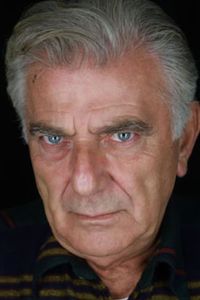Born in 1892, Robert Jackson emerged as a towering figure in the annals of American legal history, his life's journey commencing in the picturesque town of Spring Creek, Pennsylvania. Subsequently, he embarked upon a rigorous academic path, enrolling at Albany Law School, situated in the Empire State of New York, where he diligently pursued his legal education, ultimately earning his law degree. Following the successful completion of his academic pursuits, he was formally admitted to the prestigious New York State bar in 1913, thus inaugurating his illustrious legal career.
Jackson's professional journey underwent a profound transformation upon setting up his law practice in Jamestown, New York, as he seized the opportunity to serve as municipal attorney for multiple government agencies, thereby cementing his reputation as a highly accomplished and devoted legal expert.
One of the most notable aspects of Jackson's professional endeavors was his remarkable ability to juggle multiple pursuits simultaneously, with a particular highlight being his dual involvement in the fields of law and finance.
In the realm of law, Jackson maintained a thriving law practice, where he leveraged his expertise to provide exceptional legal services to his clients.
Concurrently, Jackson also ventured into the realm of banking, where he demonstrated his exceptional leadership skills by orchestrating the consolidation of three local financial institutions into a single, unified entity.
This remarkable achievement culminated in Jackson assuming the role of director for the newly formed bank, a testament to his strategic vision and ability to drive success in complex organizational settings.
As his remarkable accomplishments on a state-level judicial commission continued to garner attention, it was his exceptional abilities that ultimately drew the notice of none other than the prominent Governor Franklin D. Roosevelt, who, in the year 1934, extended to him the distinguished honor of assuming the crucial role of General Counsel for the Internal Revenue Service.
Jackson's remarkable career trajectory took a profound turn as he accepted the prestigious position of special counsel to the Securities and Exchange Commission, a role that afforded him the opportunity to spearhead a comprehensive investigation into corporations that had flagrantly disregarded antitrust regulations, thereby demonstrating his unshakeable commitment to upholding the most stringent standards of moral integrity and upholding the law, a testament to his unwavering dedication to the pursuit of justice and his unrelenting passion for ensuring that the interests of the public were protected and upheld.
**Next person biography:**
He embarked on a remarkable journey, subsequently transferring his impressive expertise to the United States Department of Justice, where he occupied a sequence of prestigious roles, including assistant attorney general of the Antitrust Division, solicitor general, and ultimately, as the 42nd United States Attorney General in the year 1940, a testament to his extraordinary leadership abilities and his unwavering dedication to serving the nation with distinction.
In the subsequent year, President Roosevelt made a notable and far-reaching decision, selecting the distinguished individual Jackson to occupy the esteemed position of Associate Justice of the United States Supreme Court, a role that carries immense prestige and influence.
In the pivotal year of 1945, President Harry S. Truman, the 33rd President of the United States, conferred upon Robert H. Jackson, a distinguished American jurist and diplomat, the weighty responsibility of serving as the chief United States prosecutor at the Nuremberg War Crimes Trials.
Notorious Nazi officials, including Hermann Göring, Joachim von Ribbentrop, and Julius Streicher, were brought to justice by Jackson as chief prosecutor, tasked with presenting a comprehensive case against them, encompassing a vast array of heinous war crimes and atrocities.
Noted defense attorney, Jackson, showcased an impressive array of legal acumen and unrelenting passion for upholding the principles of justice, consistently displaying a mastery of his craft as he navigated the complex web of trials with ease and precision, ultimately achieving a remarkable string of convictions against all defendants, a resounding testament to his exceptional abilities and unshakeable dedication to upholding the highest standards of justice.
Robert Houghwout Jackson, an illustrious jurist, having completed his extraordinary tenure as Chief Prosecutor at the historic Nuremberg trials, returned to the United States, where he resumed his prestigious position on the Supreme Court, continuing to uphold his duties with unwavering excellence until his sudden and unexpected passing on October 9, 1954, in the nation's capital, Washington, D.C.















